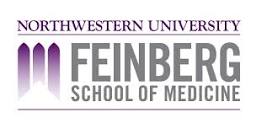Autologous Transplant To End NMO Spectrum Disorder
| Status: | Recruiting |
|---|---|
| Healthy: | No |
| Age Range: | 18 - 65 |
| Updated: | 2/6/2019 |
| Start Date: | March 2019 |
| End Date: | January 1, 2026 |
| Contact: | Kathleen Quigley, RN |
| Email: | kathleen.quigley@nm.org |
| Phone: | 312-695-8192 |
Autologous Hematopoietic Stem Cell Transplant for Neuromyelitis Optica Spectrum Disorder (NMOSD)
This study is designed to treat your disease with an autologous stem cell transplant using a
regimen of immune suppressant drugs and chemotherapy to reset your immune system and to
determine if your disease will go into long-term remission.
regimen of immune suppressant drugs and chemotherapy to reset your immune system and to
determine if your disease will go into long-term remission.
The autologous stem cell transplant used in this research study is an investigational
procedure that uses cyclophosphamide (chemotherapy), rabbit antithymocyte globulin (rATG) (a
protein that kills the immune cells that are thought to be causing your disease), rituximab
(a biologic drug that targets B cells of your immune system), and intravenous immunoglobulin
(IVIg) (pooled IgG antibodies from plasma donors with immunomodulatory and anti-inflammatory
effects), followed by return of your own previously collected blood stem cells (autologous
stem cell transplant). One day of plasmapheresis will also be performed the day prior to
admission for stem cell transplant to remove disease-causing antibodies. The ability of this
experimental treatment to stop relapses and progression (worsening) of your NMOSD will be
assessed.
procedure that uses cyclophosphamide (chemotherapy), rabbit antithymocyte globulin (rATG) (a
protein that kills the immune cells that are thought to be causing your disease), rituximab
(a biologic drug that targets B cells of your immune system), and intravenous immunoglobulin
(IVIg) (pooled IgG antibodies from plasma donors with immunomodulatory and anti-inflammatory
effects), followed by return of your own previously collected blood stem cells (autologous
stem cell transplant). One day of plasmapheresis will also be performed the day prior to
admission for stem cell transplant to remove disease-causing antibodies. The ability of this
experimental treatment to stop relapses and progression (worsening) of your NMOSD will be
assessed.
Inclusion Criteria:
1. Age 18 - 65 years old at the time of pre-transplant evaluation
2. An established diagnosis of NMOSD (with or without aquaporin 4 (AQP4)-IgG antibody)
Exclusion Criteria:
1. Under age of 18 or over age of 65
2. Prisoners
3. Psychiatric illness or mental deficiency making compliance with treatment or informed
consent impossible, or any adult who is unable to consent (for adults cognitively
impaired due to disease, consent may be obtained from the closest living relative).
4. Paraplegia or quadriplegia (must be able to use a walker if even for only a few feet)
5. Extensive subcortical white matter lesions
6. Uncontrolled diabetes mellitus or any other illness that in the opinion of the
investigators would jeopardize the ability of the patient to tolerate aggressive
treatment
7. Myocardial infarction within the last 12 months. If longer than 12 months, must pass a
dobutamine stress test and be cleared by cardiology.
8. Active systemic lupus erythematous, Sjogren's, myasthenia gravis, or another
autoimmune disease
9. Sickle cell disease, sickle cell disease, or coagulopathy
10. Prior history of malignancy that required any radiotherapy, chemotherapy, or
biological therapy
11. Positive pregnancy test, inability or unable to pursue effective means of birth
control, or failure to willingly accept or comprehend irreversible sterility as a side
effect of therapy
12. Women who are breastfeeding
13. Untreated life-threatening cardiac arrhythmia on electrocardiogram (EKG) or 24-hour
holter
14. Left ventricular ejection fraction (LVEF) <50%
15. Tiffeneau-Pinelli index (FEV1/FVC) <70% of predicted after bronchodilator therapy (if
necessary), or diffusing capacity of lung for carbon monoxide (DLCO) hemoglobin
corrected <70 % predicted
16. Serum creatinine >2.0 mg/dl
17. Liver cirrhosis, transaminases >2x of normal limits, or bilirubin >2.0 mg/dl unless
due to Gilbert's disease
18. Major hematological abnormalities such as platelet count < 100,000/μl or absolute
neutrophil count (ANC) < 1000/μl
19. Active infection except asymptomatic bacteriuria
20. Presence of metallic objects implanted in the body that would preclude the ability of
the patient to safely have magnetic resonance imaging (MRI) exams
21. Known hypersensitivity to mouse, rabbit, or E. coli derived proteins
22. Human immunodeficiency virus (HIV) positive
23. Hepatitis B or C positive
24. Use of natalizumab (Tysabri) within the previous six months
25. Use of fingolimod (Gilenya) within the previous three months
26. Use of dimethyl fumarate (Tecfidera) within the previous three months
27. Use of teriflunomide (Aubagio) unless cleared from the body (plasma concentration
<0.02mcg/ml) following elimination from the body with cholestyramine 8g three times a
day for 11 days
28. Use of alemtuzumab (Lemtrada/Campath) within previous 12 months
29. Use of rituximab (Rituxan) or ocrelizumab (Ocrevus) within previous six months
30. Prior treatment with mitoxantrone (Novantrone)
We found this trial at
2
sites
303 East Superior Street
Chicago, Illinois 60611
Chicago, Illinois 60611
Principal Investigator: Richard Burt, MD
Phone: 312-695-8192
Click here to add this to my saved trials
303 E Chicago Ave
Chicago, Illinois 60611
Chicago, Illinois 60611
(312) 503-8194

Principal Investigator: Richard Burt, MD
Phone: 312-695-4960
Northwestern University Feinberg School of Medicine Northwestern University Feinberg School of Medicine, founded in 1859,...
Click here to add this to my saved trials